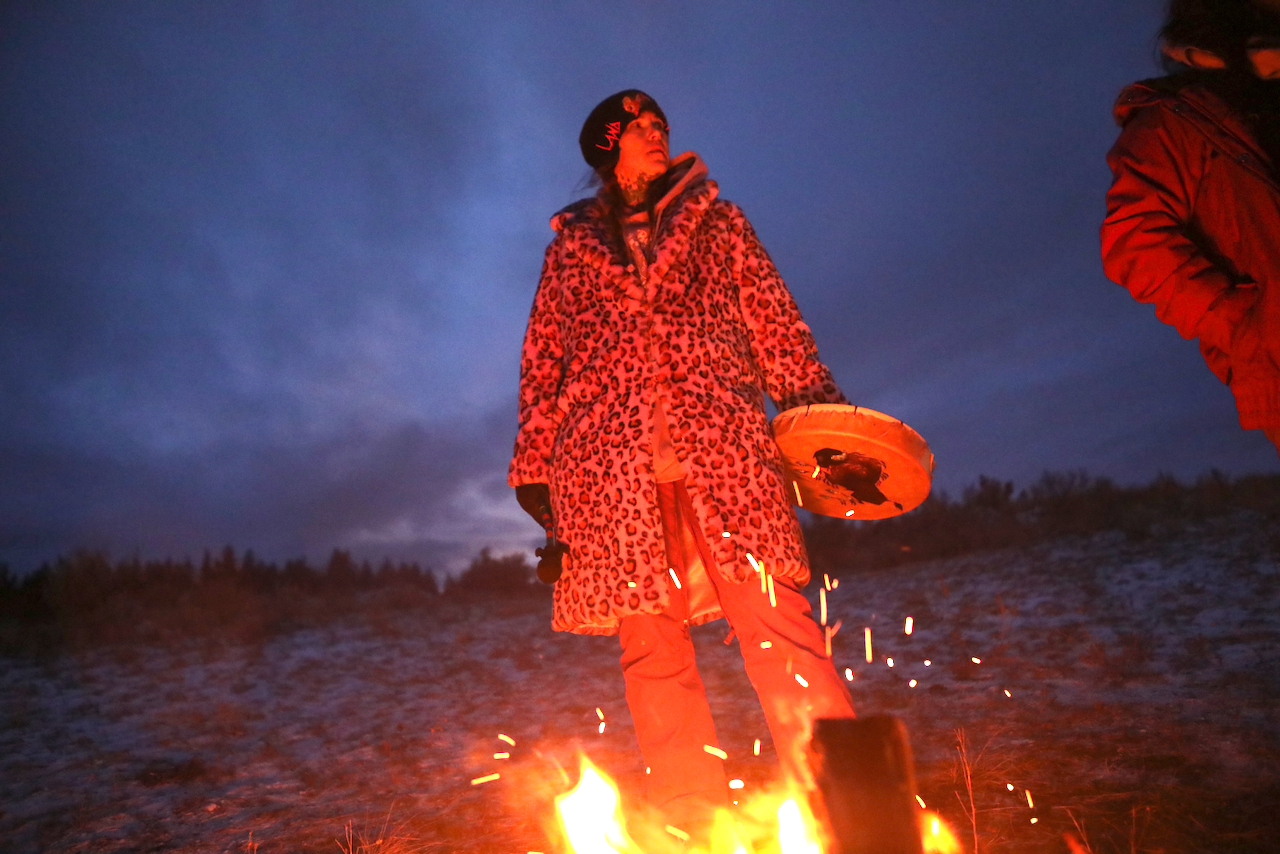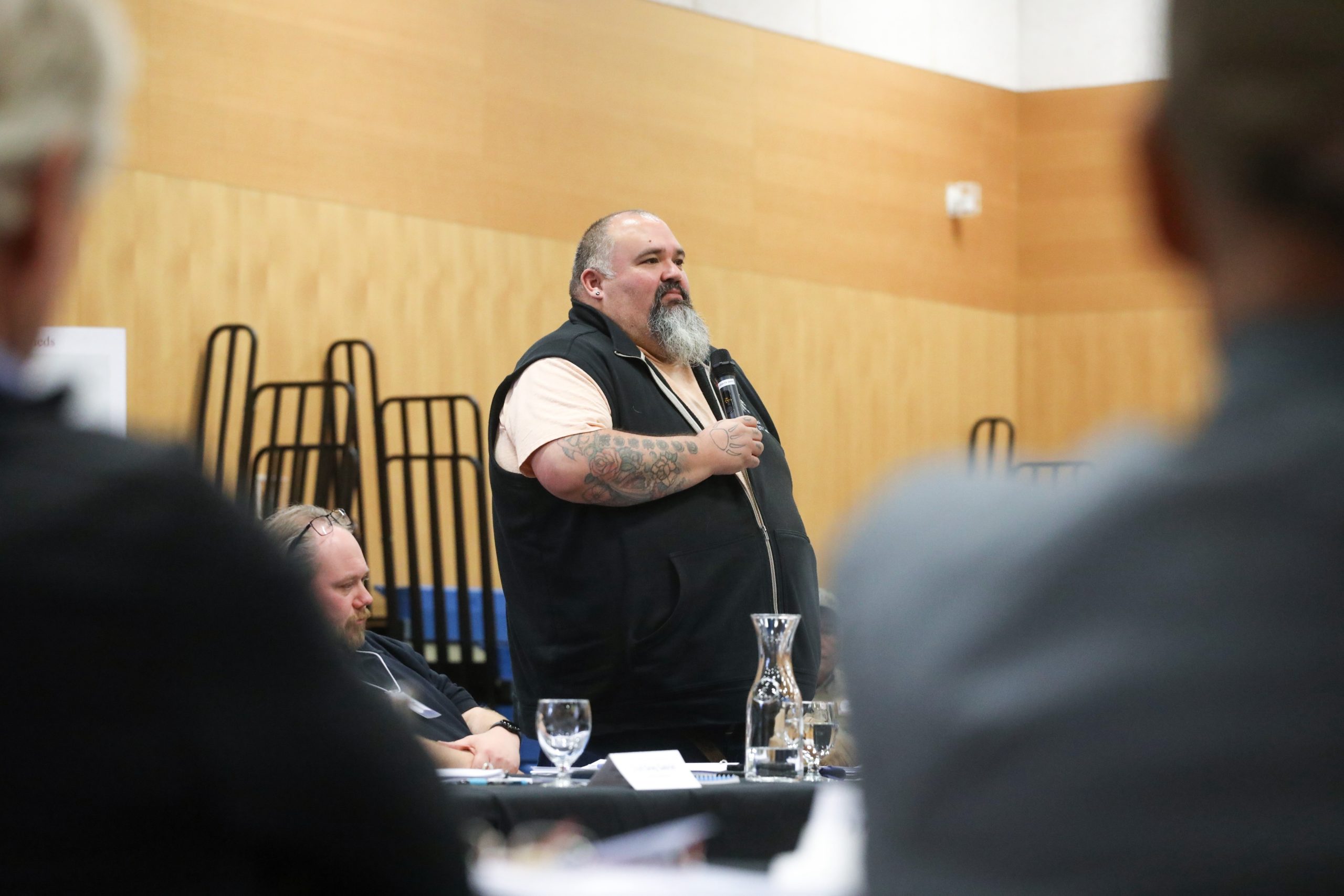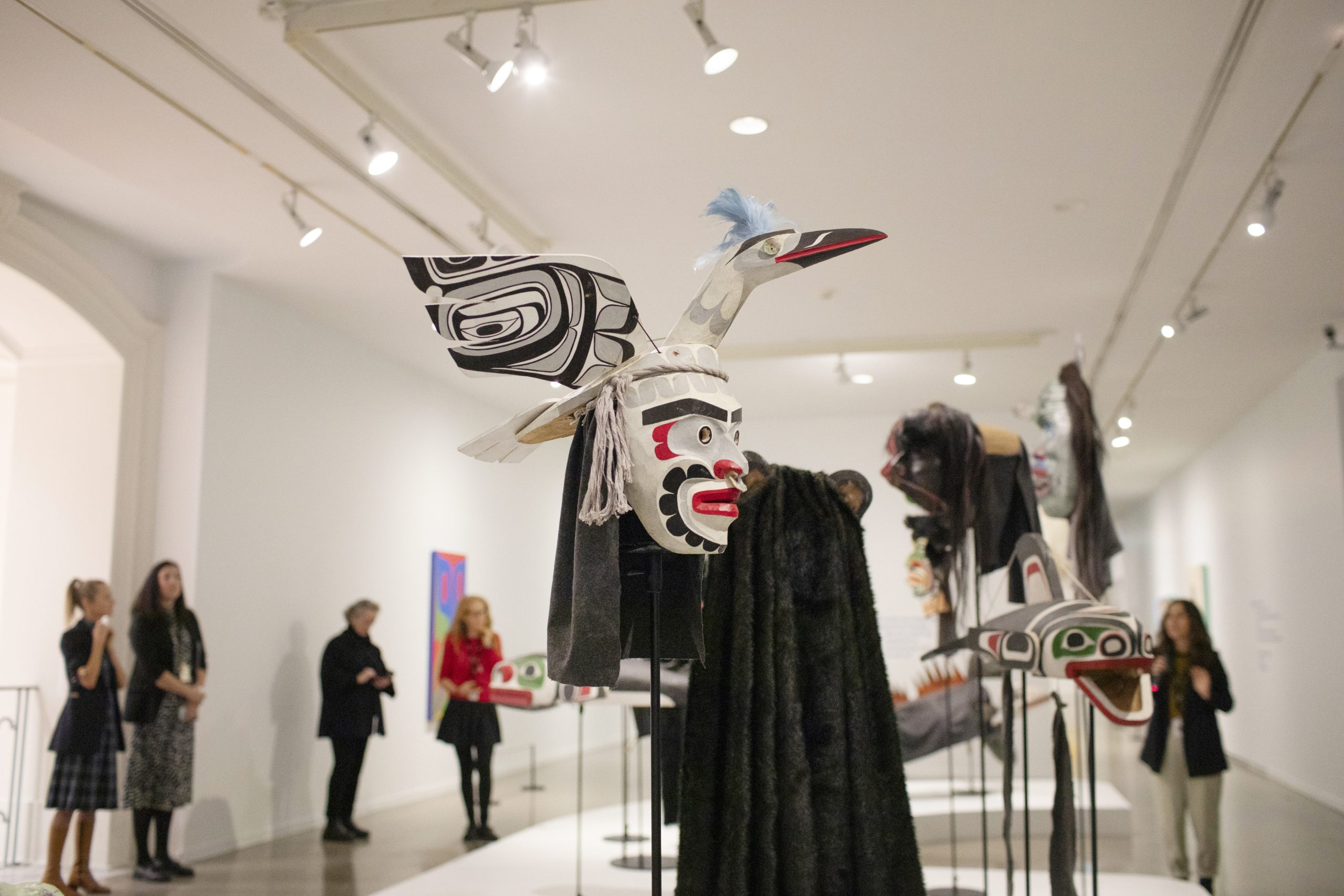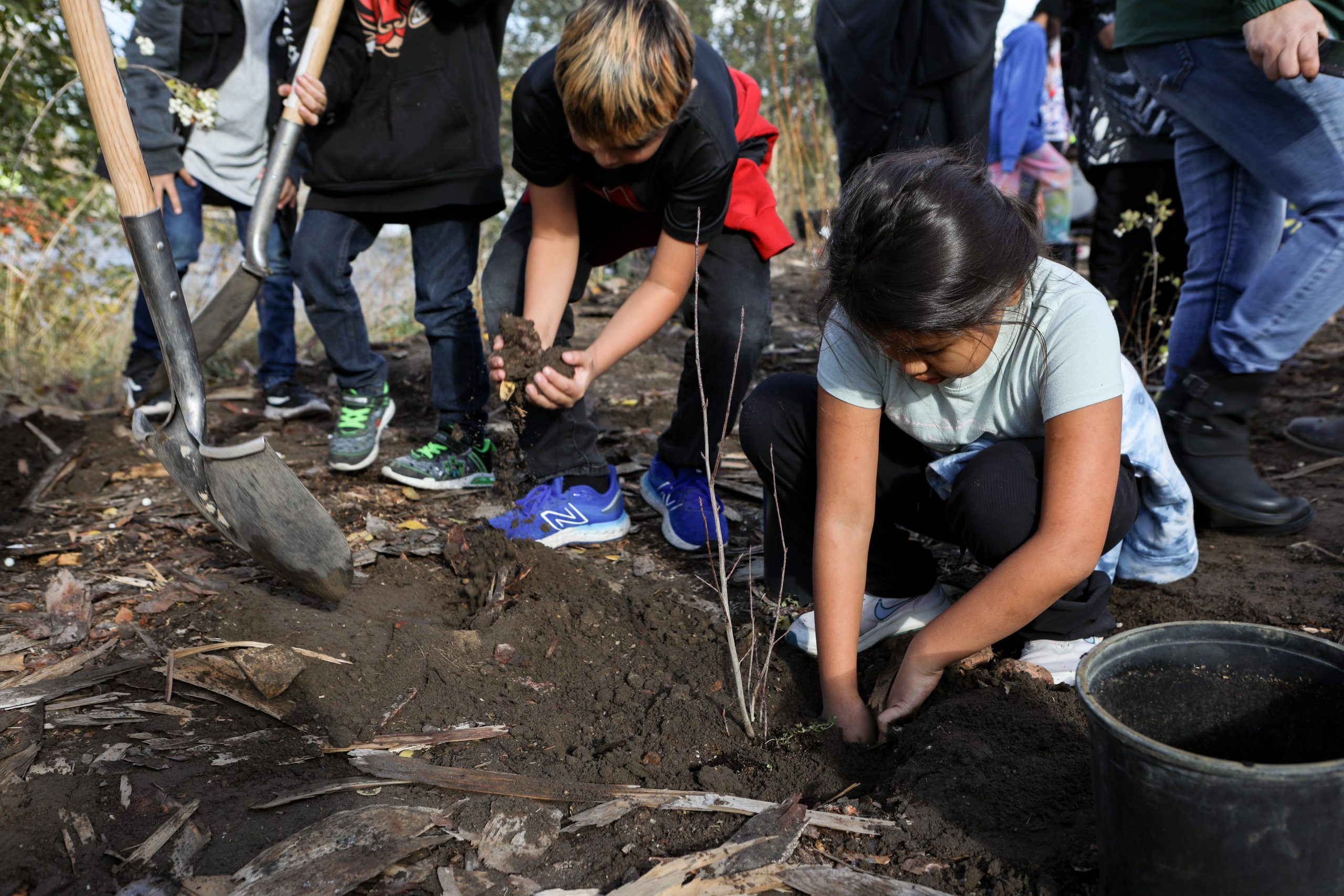Federal court set to determine the validity of Kwantlen First Nation vote to oust hereditary chief
On Jan. 18 and 19, lawyers argued whether a November 2022 sƛ̓ənəq (general assembly) called by band members represented a ‘broad consensus’


A lawyer representing Kwantlen First Nation’s longtime chief and council told a federal court judge last week that there was “no good faith” by members who led a vote to oust their hereditary leader in November of 2022.
However, representation for the Kwantlen people who prompted the vote told the court on Friday that a decision to remove Chief Marilyn Gabriel through a sƛ̓ənəq (general assembly) was “an example of custom in action” and that community members were acting based on their Coast Salish law.
Kwantlen’s system is unique in that its unelected chief and council are the sole leaders and the chief generally rules for a lifelong term. Most other First Nations with hereditary governments also have an elected government operating concurrently.
The case was heard more than a year after people gathered in a community church where they carried a motion to remove the chief who had been at the helm of the 393-member First Nation for 30 years and attempted to bring in three new councillors.
During a two-day judicial review hearing on Jan. 18 and 19, Kwantlen’s longtime governance system was pitted against a movement for democratic reform — culminating many years of conflict around the First Nation’s leadership.
Kwantlen government seeks injunction
After the November 2022 sƛ̓ənəq took place, Chief Gabriel’s government took legal action against five band members involved. Since the assembly was held, band members Brandon Gabriel, Victor Back and Christopher Thomas have been acting as Kwantlen councillors.
Now, Chief Gabriel’s government is seeking an injunction to stop these three — as well as band members Robert Jago and Robert Thomas — from representing themselves as having any authority to govern Kwantlen.
Gabriel and her two-member appointed council lead the Lower Mainland First Nation according to a custom governance code, which is unwritten and based on a hereditary system where chiefs are appointed through family lineage, predating colonization.
According to testimony from Chief Gabriel, the federal government affirmed the unwritten code after members passed a resolution in 1952 requesting that the Indian Act election system not be extended to Kwantlen.
She was then appointed by her father, Joe Gabriel, the former chief, in 1993. Chief Gabriel appointed the First Nation’s two councillors, Tumi Knott and Les Antone, in 1994.
Opening the hearing in a “Vancouver” courtroom on Thursday, Justice Panagiotis (Peter) Pamel clarified that his role would be to determine the validity of the general assembly that attempted to oust Chief Gabriel.
“The parties understand that you’re asking me, you’re asking the court, as someone who is not a member of the community, to ascertain based on conflicting affidavits what the historical custom of governance is for the community and the Nation,” he asked.
While the two parties recognized that pursuing the case through litigation was not ideal, both agreed to proceed with their submissions.
Determining consensus
On Friday, Evan Duffy, the lawyer representing the five respondents, said the sƛ̓ənəq amounted to a grassroots effort to seize power back from the leaders and a display of Coast Salish custom.
“The experts in the Indigenous laws of this community are the members,” Duffy argued.
“So the decision to remove Marilyn Gabriel, we say that that was an application of custom in action.”
The previous day, lawyer Tim Dickson — representing Chief Gabriel and her council — pointed to testimony from appointed councillor Knott, which stated that a hereditary chief “can be removed by the community if necessary, but there would need to be a consensus among the families in the community in order to do so.”
Dickson said it would be up to the other side to show that “a substantial majority of members” supported the change. He argued that the November 2022 meeting notice was posted by Jago on a private Facebook group the day before, which was not enough notice and wasn’t likely to have reached all band members.
Justice Pamel pressed the opposing lawyer Duffy to give a number of how many people were part of the Facebook page and “whether there is evidence of how many members got that notice because it all starts there.”
Duffy submitted that there were 158 people who were members of the private Facebook page but emphasized it was a grassroots effort to share information with people in the community.
“You know, my client’s position was that they were trying to disseminate it by any means they could, but they don’t have a band list. They don’t have the email communication list from the First Nation,” he said.
“So it was a challenge. I’m not going to dispute that not everyone in the band received it. We still say that it was sufficient.”
Further, Duffy argued there was “suppression,” and people were being discouraged by leadership from attending the meeting.
Evidence indicated that, of about 214 eligible voting members, 37 voted — 20 were in person and the rest as proxies or online.
While trying to determine whether that was enough of a consensus, Duffy emphasized that there was a “moving target” from Chief Gabriel’s side, saying, “They’re very good at saying what doesn’t constitute custom, what doesn’t constitute a valid vote, but they won’t tell us what will.”
“These are the rights of the members, and they’re going to be exercised. And ultimately, we’re all looking for clarity about exactly what it would take to change these governance laws,” he said.

‘They seized on this lie’
A memorandum of argument from the respondents states that, prior to taking any steps to remove Chief Gabriel and hold the election, they “consulted extensively with Nation members, Elders and experts on Coast Salish law.”
“Every step they took was scrupulously consistent with Kwantlen customs,” the document states, in part.
The memorandum maintains that members were frustrated by a lack of governance reform “throughout 2022,” and the sƛ̓ənəq was called by a family leader, Robert Thomas, after approximately one month of planning.
However, lawyer Dickson argued that the November 2022 vote — and the actions leading up to it — was “egregious” and based on “slander” against Chief Gabriel.
In the months before the vote, there were allegations that Chief Gabriel had assaulted an Elder, her sister, during a community meeting — something which RCMP was investigating but has since closed the file, stating there was no evidence to show an offence occurred.
A motion of record from Kwantlen alleges that Brandon Gabriel and Robert Jago “engaged in a campaign to slander and defame Chief Marilyn regarding events they alleged took place at an October 6, 2022, Elder’s meeting.”
Then, on November 21, 2022, the document states Robert Thomas put out a press release declaring “autonomy for the Whonnock Reserve,” citing “erratic behaviour” from Chief Gabriel, referencing the assault allegation.
The same day, Thomas wrote to the Kwantlen council, letting them know a meeting would be held on November 27 “according to a claimed custom that family leaders can convene a general meeting of the band to decide on band affairs.”
“They seized on this lie, and they used it as a means to rally opposition against Chief Gabriel,” Dickson told the court.
“It’s the first rationale given for her removal, and it was a lie. They had no good faith at all in trying to determine the actual facts of that.”
Dickson said there was only “minority support” at that meeting — which he called a “coup” — and applicants sought to find out whether there was broad consensus.
In response, a consultation vote was held in early 2023 by the purported new council — which resulted in 68 votes out of 214 eligible people. Most voted that they agreed with the November 2022 decision to oust Chief Gabriel at the sƛ̓ənəq. However, Dickson concluded that this vote was invalid for various reasons.
“The respondents gave recommendations on how members should vote, and they had commentary in there,” Dickson said, adding they were “urging people to support the removal of Marilyn Gabriel from band council.”
“They didn’t get anything like a broad consensus, and yet they’ve been purported to seize power, then are holding this consultation vote while passing themselves off as Kwantlen band council,” Dickson said.
“They’re seeking to validate what was invalid. It is not a situation where band members were reasonably, fairly seeking to hold a vote regarding change. I completely acknowledge that they are able to do that. This process was unfair from the get-go.”
‘Near unanimous opposition’
The written arguments from the respondents concluded that Kwantlen members have “patiently waited” for Chief Gabriel and her council to adopt a written governance code, and “this motion is an attempt to maintain control in the face of near-unanimous opposition from the membership.”
“This motion is brought using band funds to effectively protect the personal interests of a select few,” it argues.
“The respondents have made every effort to accommodate and work with the former leadership and have refused to cooperate.”
Chief Gabriel expressed in an affidavit that the community has been involved in an ongoing “governance dialogue” process since 2019 to “explore whether there is consensus” for reforming Kwantlen’s governance system.
In 2019, some band members signed a petition calling for a new governance code. The petition asked Indigenous Services Canada (ISC) to monitor this effort — however, ISC declined.
In this case, ISC also seems to have washed its hands of the issue. Jago wrote a letter to ISC in February 2023 asking for intervention and mediation but received a response stating that the department was “unable to intervene as Kwantlen First Nation determines its leadership under a custom election code.”
A case decision is expected as soon as possible.
Author
Latest Stories
-
‘Bring her home’: How Buffalo Woman was identified as Ashlee Shingoose
The Anishininew mother as been missing since 2022 — now, her family is one step closer to bringing her home as the Province of Manitoba vows to search for her
-
Will you help us tend to the fire?
IndigiNews is launching a fundraising campaign to support our storytelling into 2026












